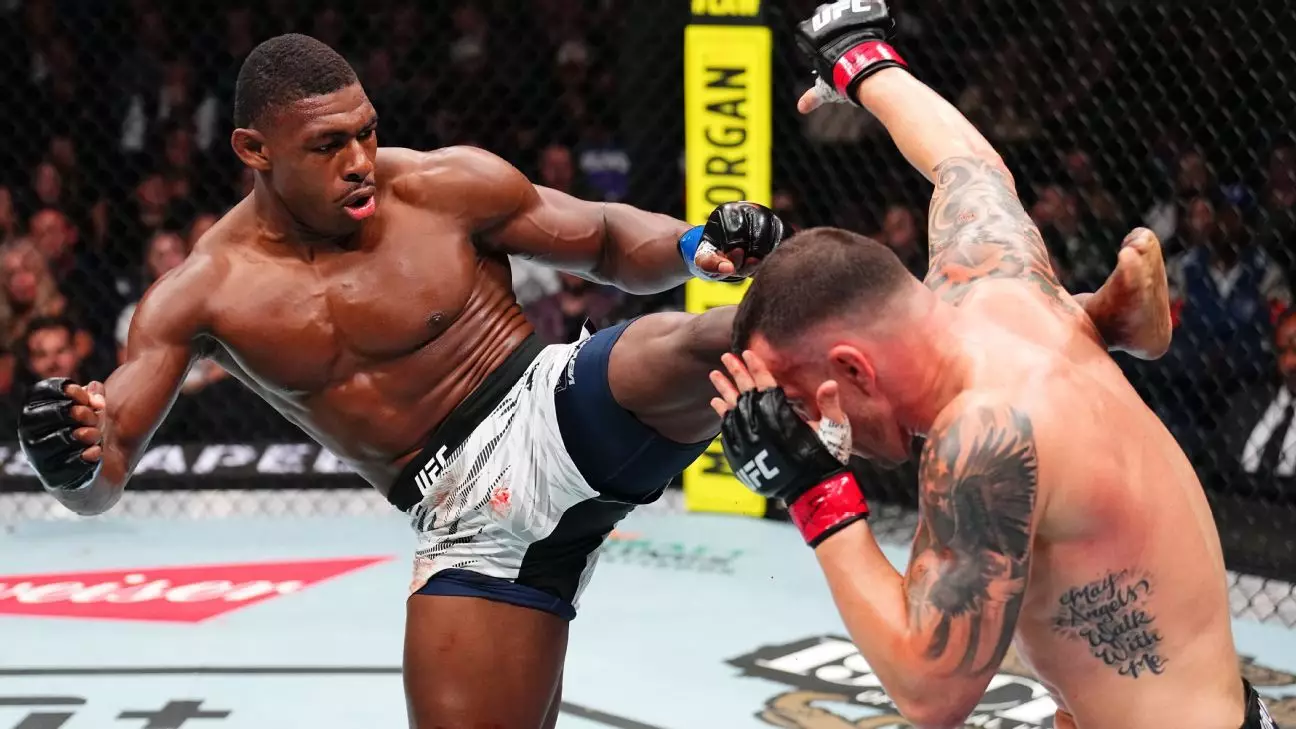The Ultimate Fighting Championship (UFC) welterweight division is undergoing a significant transformation, and at the forefront of this shift is Joaquin Buckley. With a recent victory over former interim champion Colby Covington, Buckley has cemented his place among the rising stars in the 170-pound weight class. His win, achieved through a third-round TKO due to a cut, showcased not only his striking prowess but also the changing landscape of welterweight competitors.
Joaquin Buckley (21-6) has seen an impressive surge in performance, extending his winning streak to six consecutive fights. The bout against Covington, held at the Tampa, Florida, event, rounded out a successful 2024 for Buckley, who is quickly becoming a name to watch. The stoppage by the cageside physician highlighted the medical risks fighters face, especially when wounds occur during battle, but it also underscored Buckley’s effectiveness inside the Octagon.
In the lead-up to the fight, Buckley demonstrated a keen awareness of the welterweight landscape. After his victory, he engaged the audience at Amalie Arena, asking them whom they would like to see him fight next. With options like Leon Edwards, Kamaru Usman, and the current champion Belal Muhammad, Buckley exuded confidence, particularly leaning towards a bout with Usman. This immediate call-out reflects not just his desire for high-stakes matches but also an understanding of marketability in the UFC.
Colby Covington (17-5), known for his brash personality and pro-wrestling theatrics, faced Buckley on short notice after the original fight plans for Buckley fell through. Covington’s management must be re-evaluating their strategy, particularly as Covington’s performance in recent bouts has been lackluster, with a record of 1-3 in his last four fights. This significant loss might signal a pivotal moment in his career, leading to questions about his relevancy in an evolving division.
Despite his continued presence in welterweight discussions, Covington’s struggles gave rise to a comparative examination of the new breed of fighters for whom Covington once set the benchmark. His lack of striking effectiveness and inability to convert takedowns—achieving only one out of eight attempts against Buckley—paint a picture of a fighter who may not only be past his prime but also one who is gradually being outperformed by new talents.
The Welterweight Landscape Shifting
The welterweight division has seen a frustrating trend for some established names. Kamaru Usman, once a dominant champion, has seen his momentum stall with three consecutive losses. Jorge Masvidal, a fan favorite, announced his retirement, but his potential return is still in the air as he approaches 40 years old.
In contrast, new contenders like Buckley, Shavkat Rakhmonov, Ian Machado Garry, and Jack Della Maddalena are not just making waves; they are potentially reshaping the entire division hierarchy. Their athleticism, coupled with dynamic fighting styles, presents a serious challenge to veterans who once held significant dominance.
As Buckley wraps up an impressive 2024—boasting knockout victories over notable competitors like Covington and Stephen “Wonderboy” Thompson—the future seems particularly promising for him. With every win, he brings not only skills but a refreshing competitive spirit to the welterweight division, one that could invigorate championship aspirations for years to come.
The UFC’s welterweight division may be witnessing the twilight of its older stars, but it is also witnessing the rise of a new generation, led by talents like Joaquin Buckley. His performances signify the beginning of an exciting new chapter, making him a fighter to closely follow as he aims to stake his claim in one of the most competitive landscapes in mixed martial arts. This reshuffling in elite fighters could lead to thrilling matchups and revitalized narratives, ensuring that the welterweight division remains vibrant and unpredictable.

